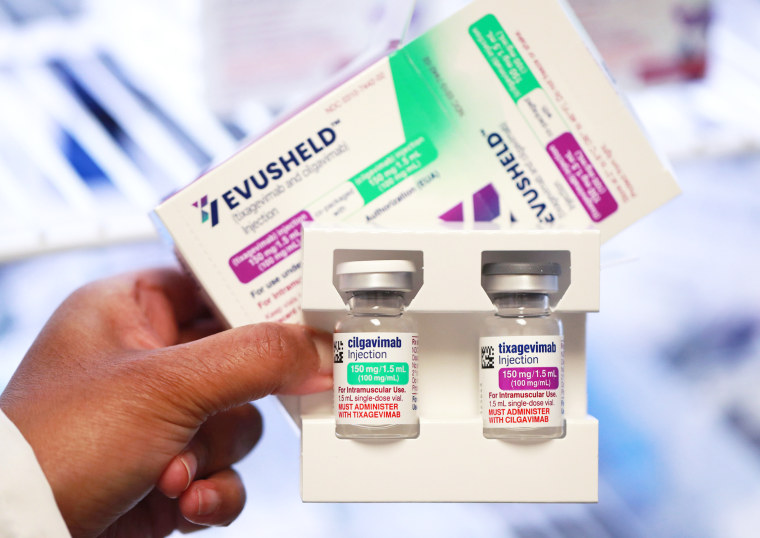Omicron subvariants pose a new threat to people with immune deficiencies
People with compromised immune systems face a new winter of discontent as the ever-mutating omicron virus threatens to outrun the preventive monoclonal antibody cocktail that hundreds of thousands of them have relied upon for extra protection against Covid.
Troubling recent reports reveal the emergence of new omicron subvariants that not only evade AstraZeneca’s Evusheld, the antibody drug authorized to prevent Covid infection, but also the sole antibody drug that has retained effectiveness as treatment for Covid, Eli Lilly’s bebtelovimab.
“It scares the hell out of us,” said Minneapolis area resident Mimi Razim-FitzSimons.
Her daughter, Laura, 23, has a rare autoimmune condition that caused her to need a new kidney. Laura is highly immunocompromised by drugs used to prevent transplant rejection. Doctors have cautioned that should Laura get Covid, this could aggravate her autoimmune disease and lead to catastrophic kidney damage.
Evusheld is a long-acting antibody injection given every six months that studies have suggested provides a robust buffer to the immunosuppressed. An Israeli study of this population published July 29 found that Evusheld was associated with half the incidence of coronavirus infection and a 92% lower likelihood of hospitalization or death.

From freedom to facing a lonely life
The dual-antibody cocktail, medical experts lament, has actually been vastly underused in the U.S. An estimated 7 million U.S. adults are immunocompromised. But since Evusheld received its emergency authorization in December, only 582,361 doses have been administered — many of them likely second doses — according the Administration for Strategic Preparedness and Response.
For people like Laura, who allowed her mother to speak on her behalf because she has a speech disability, Evusheld’s added layer of protection has afforded them at least a modicum of freedom.
This year, Laura has emerged for the occasional movie or meal out, as well as much needed trips to the dentist and to see her primary care physician. Having been relegated to attending college online for her art degree, she was even hoping to transfer to an in-person university experience.
“Every bit of that is off the table if we don’t have protection from what’s coming down the pike,” Razim-FitzSimons said.
Laura, she said, faces an interminably lonely life spent almost entirely at home.
For now, immunocompromised people are anxiously watching the pandemic forecast to see if the subvariants that research indicates evade monoclonal antibodies will become predominant.
On Wednesday, the National Institutes of Health’s Covid-19 Treatment Guidelines Panel issued a statement that the prevalence of these subvariants “is currently low or moderate.”
Epidemiologists worry that Evusheld in particular could provide little protection within a month or two. The Centers for Disease Control and Prevention reported Friday that the strains that are apparently resistant to Evusheld or bebtelovimab have been steadily increasing in the U.S.

Read More: Omicron subvariants pose a new threat to people with immune deficiencies
